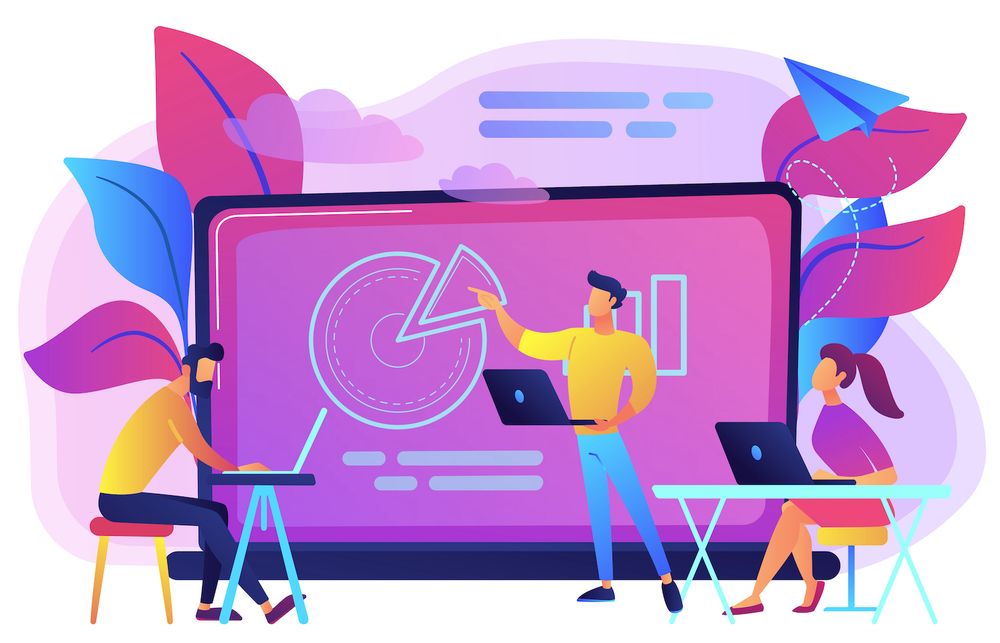Does What Epic Wants for App Stores What Other Game Developers Actually Want? -
In a time when mobile game and application developers gasp for air under a player-gouging 30% duopoly-tax almost all mobile game revenue around the world, Epic Games has emerged as the game industry's leader in the fight for open computing on mobile.
Privately, they asked large and small studios for games what they wanted in a game, and here's what they said they wanted to hear.
Background: The Slow Decline of Open Computing, and the 30% tax on apps
The world of computing has never been more flexible than today. For a long time the video game industry and creators have relied on the open computing with PC and Mac platforms as it allowed the developers to create titles in any way they like, enjoy the direct contact with their players and select payment options that work for them. There were no gatekeepers -only a computer players, and a game. The world has changed.
Today, over half of people's computing screen time is consumed using mobile devices, a share that's growing -in addition, nearly 99% of global smartphone OS market share is split between just Apple or Google. Due to the dominance of mobile market share as well as tight controls on game distribution and ecommerce, the world that is open to computing now in peril like never before, imposing a great price on consumers as well in the form of app developers and game makers.
Case in point, both Google as well as Apple's app stores enforce a 30% fee on game sales and other products in games distributed by their platforms. Apple controls 100% of all game distribution and ecommerce on iOS devices. On the other hand, Google lets OEM marketplace applications and sideloading of mobile games, however, it severely limits third-party in-game payments for games distributed through Google Play.
Google Play does offer a third-party integration of payments for a limited number of game developers through its " user choice billing" test but "user preference billing" comes with pricey evergreen marketplace charges of 26% even if you choose to use your own payment service provider and accept all the responsibility and risk of payments.
The result of Apple as well as Google's control over such a huge share of the global computer market is a default 30% tax for mobile games and applications, which is paid by players, and is not shared with game developers, and stifles the openness of computing and commerce. Due to this stranglehold on open computing, gamers large and small believe they must change their ways.
What do game developers who Don't Have Epic Games Want?
The team here at embarked on a months-long quest to speak with game studios small and large about what they would like to see happen with the policies of mobile apps store. Although not all of them agreed on each aspect, these are three of the most popular points they mentioned they wanted:
1. iOS to support sideloading games with no scare screens.
iOS has long restricted "sideloading" games and apps -- in which the application is downloaded out of the App Store and downloaded from the site of the developer or other market. Sideloading allows freedom for players to purchase and developers to sell and distribute games, in any way the creator decides and which the player is willing to accept. Android does allow sideloading apps and games but only with the dreadful warnings known in the form of "scare screens" that inform mobile phone owners of the risks of "downloading applications from the web." Many of the game developers we spoke with felt Apple should be able to support sideloading. They also felt that Apple as well as Google shouldn't use over-the-top self-serving scare screens that disparage software distribution outside of their own app stores.
2. Allow Unlimited "steering" and embedded payment through third-party payment platforms.
Both Google as well as Apple place severe restrictions on the ability to surface prices and purchase options that are offered by third-party payment services that are not part of the app store. This means the same purchase could be available for cheaper prices for players, however game developers cannot steer their players to those options, link to other purchases, or even embed third-party purchase experiences inside their game. While many game developers we spoke with found great value in transactions through store apps, the general preference was to give users and developers the ability to choose of steering away from and embedding payment limitations.
3. 0% fee for embedded and steering payments as well as embedded fees.
Offering steering or embedded payments is one thing, but as we've seen with Google's "user option billing" pilot, the ability to take action and the incentive financially to do the thing are two separate things. With "user option billing" featuring a still-massive 26% charge for payments from third party payment service providers and the costs those providers charge, this equates to a $0 gain for most game designers. We spoke with game developers who felt the 0% rate was fair reduction for transactions that are not made through the app store; however they were all in favor for some kind of financial reward for the app stores helping to drive the downloading and use of games. However that a cut of 26% of all third-party transactions for the rest of time is far from what game developers thought was reasonable.
What's next?
While there are other subtle desires regarding the way apps operate, which game developers would like to have, these three desires are the core of what they believe would bring about real change in open computing for mobile.
About

